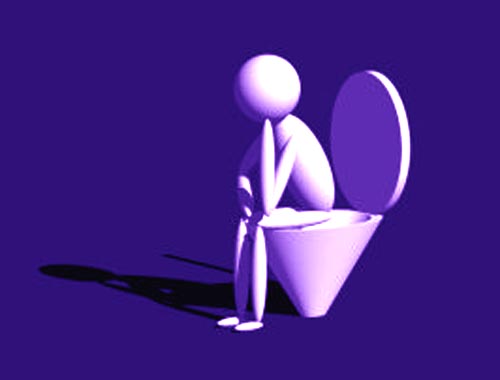E. Coli bacteria

Published: 18 Jun 2025
ICD9: 041.41 ICD10: B96.21 ICD11: 1A03
Escherichia coli (often shortened to E.
coli) is a large and diverse group of bacteria that live in the intestines of people and animals. Most strains of E. coli are harmless and even play an important role in keeping your digestive system healthy. However, some strains can cause illness.
Here's a breakdown:
![]() What it is: A type of bacteria (specifically, Gram-negative bacteria).
What it is: A type of bacteria (specifically, Gram-negative bacteria).
![]() Where it lives: Primarily in the intestines of humans and animals.
Where it lives: Primarily in the intestines of humans and animals.
![]() Most strains are harmless: Many E. coli strains are part of the normal gut flora and help with digestion.
Most strains are harmless: Many E. coli strains are part of the normal gut flora and help with digestion.
![]() Some strains are pathogenic (disease-causing): These strains produce toxins that can lead to various illnesses.
Some strains are pathogenic (disease-causing): These strains produce toxins that can lead to various illnesses.
Common Illnesses Caused by Pathogenic E. Coli:
![]() Diarrhea: This is the most common symptom. Different strains can cause different types of diarrhea, from mild and watery to severe and bloody.
Diarrhea: This is the most common symptom. Different strains can cause different types of diarrhea, from mild and watery to severe and bloody.
![]() Urinary tract infections (UTIs): E. coli is a common cause of UTIs.
Urinary tract infections (UTIs): E. coli is a common cause of UTIs.
![]() Pneumonia: In rare cases, E. coli can cause pneumonia.
Pneumonia: In rare cases, E. coli can cause pneumonia.
![]() Bloodstream infections (bacteremia): Also rare, but serious.
Bloodstream infections (bacteremia): Also rare, but serious.
![]() Hemolytic uremic syndrome (HUS): This is a severe complication, most often associated with E. coli O157:H7, that can lead to kidney failure. HUS is most common in children.
Hemolytic uremic syndrome (HUS): This is a severe complication, most often associated with E. coli O157:H7, that can lead to kidney failure. HUS is most common in children.
E. Coli O157:H7:
![]() This is a particularly dangerous strain of E. coli.
This is a particularly dangerous strain of E. coli.
![]() It produces a potent toxin called Shiga toxin.
It produces a potent toxin called Shiga toxin.
![]() It's often associated with contaminated food, especially undercooked ground beef, raw milk, and unwashed produce.
It's often associated with contaminated food, especially undercooked ground beef, raw milk, and unwashed produce.
![]() Symptoms include severe abdominal cramps, bloody diarrhea, and vomiting.
Symptoms include severe abdominal cramps, bloody diarrhea, and vomiting.
![]() It can lead to HUS, especially in young children and the elderly.
It can lead to HUS, especially in young children and the elderly.
How E. Coli Spreads:
![]() Contaminated food: This is a major source of infection.
Contaminated food: This is a major source of infection.
![]() Contaminated water: Drinking or swimming in contaminated water.
Contaminated water: Drinking or swimming in contaminated water.
![]() Animal contact: Contact with farm animals or pets.
Animal contact: Contact with farm animals or pets.
![]() Person-to-person spread: Poor hygiene, especially not washing hands after using the toilet or changing diapers.
Person-to-person spread: Poor hygiene, especially not washing hands after using the toilet or changing diapers.
Prevention:
![]() Cook food thoroughly: Especially ground beef. Use a food thermometer.
Cook food thoroughly: Especially ground beef. Use a food thermometer.
![]() Wash hands frequently: Especially after using the bathroom, changing diapers, and before preparing food.
Wash hands frequently: Especially after using the bathroom, changing diapers, and before preparing food.
![]() Wash fruits and vegetables thoroughly: Even if they are pre-washed.
Wash fruits and vegetables thoroughly: Even if they are pre-washed.
![]() Avoid unpasteurized milk and juice.
Avoid unpasteurized milk and juice.
![]() Drink safe water: If you are concerned about water quality, boil it or use a water filter.
Drink safe water: If you are concerned about water quality, boil it or use a water filter.
![]() Avoid swallowing water while swimming.
Avoid swallowing water while swimming.
![]() Practice good hygiene when handling animals.
Practice good hygiene when handling animals.
![]() Keep raw and cooked foods separate.
Keep raw and cooked foods separate.
In summary, E. coli is a common bacterium with both beneficial and harmful strains. While most E. coli are harmless, certain strains can cause serious illnesses, particularly through contaminated food and water. Practicing good hygiene and food safety is crucial in preventing E. coli infections.